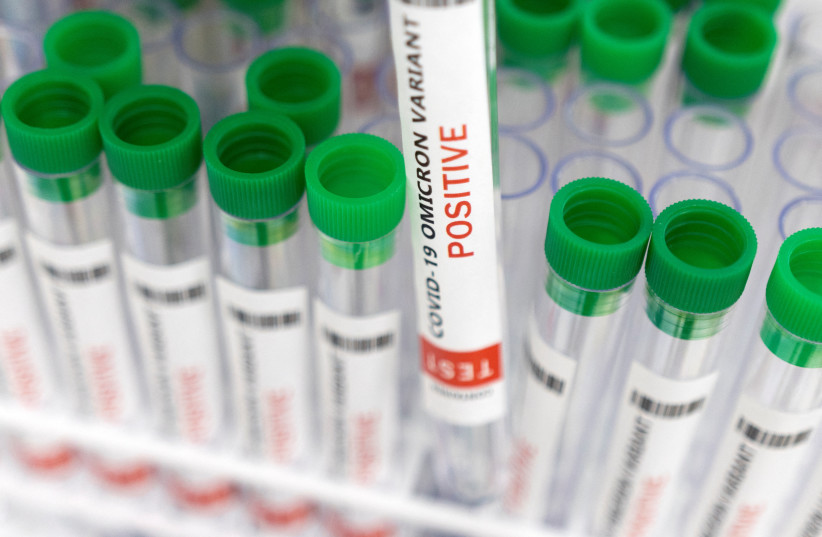The voraciousness of the Omicron variant during the battle against the coronavirus pandemic has required a new way of thinking to tackle the disease. We now know that while Omicron is much more infectious than Delta, leading to a huge rise in numbers of cases, it is less deadly and carries lower risks, particularly for those who are fully vaccinated.
<br><br><br>The decreased effectiveness of the Green Pass
The time has come, then, to reassess the Green Pass (Tav Yarok) that has been used until now. The Green Pass was effective both in reducing the numbers of potential carriers gathering in public places and as a means of encouraging people to get vaccinated. Omicron has, however, made it less effective, particularly as the vaccination rate is relatively high anyway.
The Green Pass was launched in February 2021, via the Health Ministry under then-prime minister Benjamin Netanyahu. The rationale was to have a tool to open up communal spaces while lowering the risks of mass-spreader incidents. It followed the country’s very successful COVID-19 vaccination campaign that started at the end of the previous year.
The rules concerning the Green Pass have changed over time as coronavirus itself has changed, but the principle remained the same: to grant a pass to individuals who had received their second dose and, later the third shot, meaning they are fully vaccinated. The pass is also issued to those who have recently recovered from the virus.
People have grown used to showing their pass in physical form or via the mobile app to enter gyms, theaters, hotels, concert halls, clubs, museums and elsewhere.

Protect those at risk from COVID
The government is now discussing the next steps, given that the Green Pass expires at the end of the month. Even some public health experts, including Prof. Ran Balicer, now say that the Green Pass is no longer necessary or effective in its current form.
New ways must be found to create environments that are as safe as possible.
Obviously, doing away with the Green Pass does not get rid of the disease, the same way that changing testing methods does not prevent the spread of the virus. The number-one priority remains for the general public to act responsibly, for their own sakes as well as an act of social solidarity.
We must also continue to encourage vaccination, from age five and up. We do not believe in taking the approach that Austria and other places have taken, enforcing vaccination. Such things should not be coerced. Instead of punishing those unwilling to be vaccinated, we should be encouraging those who do the right thing and vaccinate. The incentives could come in many forms, including one-off government handouts and tax breaks, for example.
The focus must now move to protecting those most at risk. We cannot abandon weaker members of society – the elderly or ailing. It has been suggested, for instance, that a voluntary Green Pass could be implemented in old-age care homes and nursing facilities. But the general public needs to be free to return to as normal a life and routine as possible.
This is essential both to keep the economy going and also for the mental health and emotional well-being of us all. Learning to live alongside the novel coronavirus needs to become more than a slogan. COVID-19 will be with us for a while yet in various waves and forms. It cannot be shut out. Vaccination remains a key alongside responsible home testing, wearing masks in public indoor places, and taking other precautionary measures such as not overcrowding and not venturing into public when there is even a possibility of being infectious.
We need to restart the tourism industry. Opening the skies with Green Pass restrictions that are unattainable for many makes no sense. Ditto, the cultural scene. Now that vaccinations and home tests are available to all, clubs and concert halls, cinemas and restaurants must be allowed to return to functioning at fuller capacity.
The country is blessed with highly respected experts in the field of public health and with a capacity to think out of the box. We need to find a way that combines economic sense and commonsense, physical health and emotional health and wellbeing. It’s time to give a green light to moving beyond the Green Pass.
